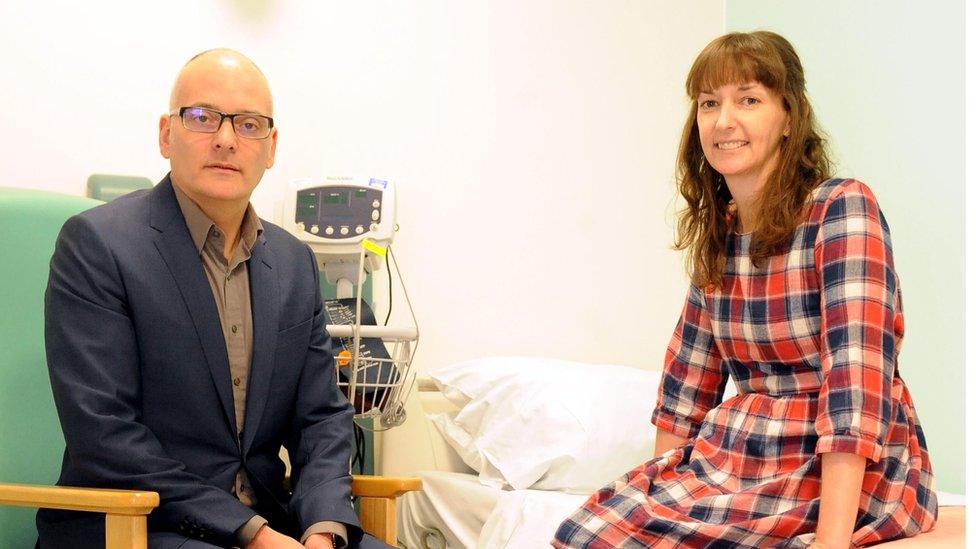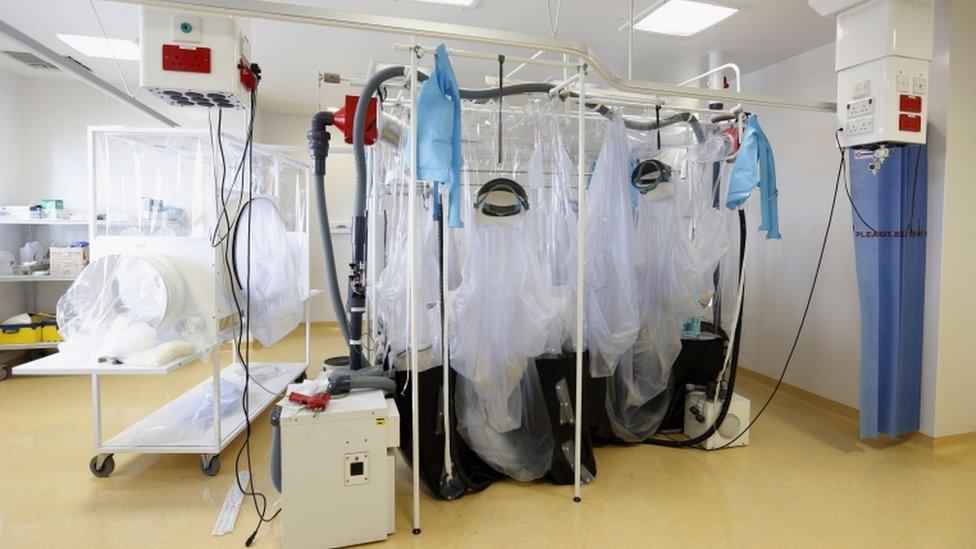Ebola medical staff given New Year honours
- Published

Dr Jacobs treated Pauline Cafferkey, who caught Ebola in Sierra Leone
British doctors and nurses involved in the fight against the world's worst outbreak of Ebola have been recognised in the New Year Honours list.
Among them is Dr Michael Jacobs, who leads the specialist infectious diseases team at the Royal Free Hospital in London.
He received a knighthood after helping treat three Britons who caught Ebola while working in Sierra Leone.
Staff who responded to the crisis overseas also received awards.
'Work and sacrifice'
The Ebola virus has killed more than 11,300 people in the last 20 months - most in the worst-affected countries of Sierra Leone, Liberia and Guinea.
The disease is spread through close contact with infected fluids, putting health workers caring for patients with Ebola at heightened risk.
British nurses William Pooley, Pauline Cafferkey and army reservist Cpl Anna Cross who all contracted the disease while working in Sierra Leone, were treated at a specialist isolation unit at the Royal Free Hospital.

Specialist infectious diseases isolation unit at the Royal Free Hospital
Dr Jacobs said caring for them in this challenging environment was both a huge privilege and enormous team effort.
He said: "We were up in the unit 24 hours a day looking after the patients, led by the nurses who are working incredibly hard.
"They had to be very, very careful to make sure everyone was safe. And with them were doctors and all the other people looking after them."
He added: "Uppermost in our mind was what the nurses had been through when they were working in West Africa and what they had seen."
The team was also involved in trialling experimental drugs against the disease and by investigating patients in detail, they were able to add to a gradually growing knowledge of Ebola.
Dr Jacobs added: "We also learnt how incredible the NHS can be in an emergency like this and in a crisis. The teamwork between my colleagues was remarkable."
Dr Daniel Martin, an intensive care specialist at the hospital and part of the team, received an OBE.
The same honour went to Grace Jackson, of the Department for International Development, who helped coordinated the response to Ebola in Sierra Leone.
Meanwhile, the Foreign and Commonwealth Office announced that paramedic Collette Kalle was made an OBE for leading a medical team at an Ebola treatment centre in Sierra Leone.
'Stood up to it'
Omaru Badara Sisay, who also received an OBE for his efforts in coordinating the flow of information in Sierra Leone, said: "Fighting Ebola took some incredible work and sacrifice from over 40,000 Sierra Leoneans, African, British and many other people and organisations who stood up to it there and then."
People working to combat other diseases and broader health issues were also on the honours list, including 10 awards for nurses at MBE level.
Prof Til Wykes, of King's College London, whose research concentrates on developing better treatments for schizophrenia, received a damehood for her work on clinical psychology.
Others include Harpal Kumar, chief executive of the charity Cancer Research UK, who received a knighthood.